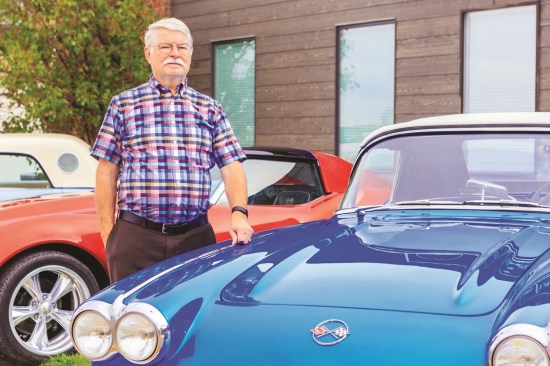
Charlie Bulla
Working in an auto body shop, Robinson not only learned a new business, he was able to restore a number of classic cars.
Despite already having stepped down as CEO and helming a successful ESOP, quitting day came suddenly for Owen Robinson, who we profile in a separate article. Here’s a rundown of his top recommendations for lumber execs ready for a fulfilling ride into the sunset.
- Take care of #1. And that doesn’t mean you, it means your team. “My No. 1 axiom in business is to take care of your employees, to ensure that they are happy, that their working conditions are good, and that they know you care about them, because everything else will take care of itself from there.”
- Don’t go lax on tax. “Make sure you set yourself up as an S corporation,” Robinson says of the pass-through entity that allows business and tax deductions to be passed on to owners rather than being taxed at the corporate level.
- Feel the need for speed. Robinson was able to execute a sale that provided shareholders a premium return over what might have been a 10-year ESOP succession. “If you’re going the ESOP route, and I would highly suggest that you do, just be sure to start it early and prefund it well.”
- Plan it like a pro. “You need to treat retirement like it’s your next business,” Robinson says. “Make serious plans about what you’re going to do and how you’re going to get there.”
